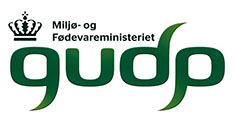Microwave technology for faster and safer food processing
PROJECT IS COMPLETED
Project period: 2013 – 2018
Foodwaves will reduce processing time and energy consumption by two-thirds in the food industry when marinating, salting and smoking, and it will increase the shelf life of the products.

Observations from industrial practice shows that very short "cold" microwave processing of raw salmon can reduce the otherwise lengthy processing time for the subsequent salting, marinating and smoking, as well as extending the microbiological shelf life.
The hypothesis is that a short in-line non-thermal intensive microwave treatment can induce changes that facilitate the penetration of salt and smoke into non-denatured meat and fish while the microbial flora is reduced.
It is also hypothesised that the use of a newly released wavelength could reinforce these effects, leading to lower resource consumption, better durability, less food waste and increased competitiveness.
The objectives are: i) to reduce process times and associated energy to a third in the salting and smoking of meat and fish products and ii) to extend shelf life by 20% to 30% with a corresponding reduction of food waste, climate impact and nutrient release.
The project will achieve its objectives by developing newly targeted microwave equipment and systematically testing the hypothesis and documenting the effects. The project will further study the causal phenomena for the observed effects.
Implementation of the project's technology is expected to provide Danish food companies a competitive advantage while creating new export opportunities for both equipment and food producers.
Funded by:

Original title: Hurtigere og sikrere fødevareforarbejdning vha. "kold" mikrobølgeteknologi - FOODWAVES
Period: September 2013 - January 2018
Grant donor: Green Development and Demonstration Programme (GUDP)
FOOD grant: DKK 5,120,000
Total budget / total grant: DKK 8,373,000
Contact
 Jens Risbo
Jens Risbo
Associate Professor
Ingredient and Dairy Technology
